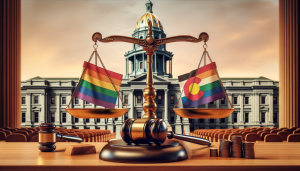Kentucky Senate advances bill to limit drag performances

Kentucky Senate passed a bill banning drag performances in public places or in front children. The legislation was sent to the Kentucky House.
The Senate passed the bill by 26-6 votes along party lines, with one senator abstaining. The Republican supermajorities are present in both the House and Senate.
The legislation would ban any person in the state from performing an “adult performance” on any publicly owned property or in a place where they should know someone younger than 18 years.
An adult performance is defined as one that involves sexually explicit acts, such as homosexuality, intentional “exhibition” or exposure of genitals, pubic region, and female breast.
|
This definition includes live performances involving male and female “impersonators”, who entertain a prurient interest but have no serious literary, artistic or political value.
The act’s first and second offenses would be misdemeanors. The third and subsequent offenses would become felonies.
Businesses that host an event that includes adult entertainment and children could face being reprimanded or their liquor license revoked. They also risk losing their business license.
After Tennessee Governor Bill Lee (R), the bill was approved by the state Senate. Last week, Bill Lee (R), signed a similar bill into legislation.
During debate, state senator Lindsey Tichenor (R), who was the bill’s lead sponsor, stated that “The intention of this legislation is restrict these types of adults performances to adults.”
According to the Associated Press, Tichenor stated that there is a long history of male and female “impersonators”. The bill does not address performances such as Robin Williams’ in “Mrs. Doubtfire.”
She said adult performances are being opened to the public as “appropriate-for-all-ages under the guise of inclusivity,” AP reported.
Opponents of the legislation called it a violation of the First Amendment to Constitution.
Senator Cassie Chambers Armstrong, a Democratic State Senator, voted against the bill. She said that the First Amendment protects people’s “expressive choices.” This includes the choice to dress in drag and the way they express themselves.









No Comments